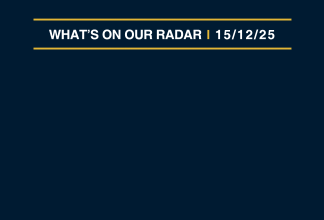Every Bull Market Meets Its Bear
Written by The Inspired Investor Team
Published on March 23, 2020
minute read
Share:
In the natural world, bulls attack upward with their horns, while bears attack downwardly with their claws – that's why when market prices are rising (and expected to rise) it's called a "bull," and when market prices are falling and expected to decline, it's called a "bear." That's more or less where the comparison stops, because while in nature, bulls and bears seldom come face to face, in the market, eventually, every bull meets its bear.
The S&P 500 entered a bear market on June 13, 2022 after dropping more than 20 per cent from its record closing high in January amid rising inflation, continued interest-rate hikes and recession fears. The last time global markets swung into bearish territory was March 11, 2020, when fears over the newly declared COVID-19 pandemic halted an 11-year bull – the longest in history. But what does this mean?
Just what is a bear market?
A bear market is defined by stock prices in an index falling by 20 per cent or more as compared to recent highs. Some examples from early March 2020: The S&P/TSX Composite Index (which represents approximately 70 per cent of the Toronto Stock Exchange's market capitalization), the S&P 500 (a key gauge of large-cap U.S. equity performance) and the Dow Jones Industrial Average (comprising 30 industry-leading blue-chip stocks) all fell more than 20 per cent from recent peaks. Notably, bear market territory is marked by the magnitude of a decline, not how long prices have been falling. Diminished investor confidence can lead to lower prices and market values for investments.
What does it mean to be “bearish"?
Lacking confidence about the foreseeable future, bearish investors' pessimistic outlook and short-term perspective may drive them to sell off holdings as they believe value will continue to diminish. Some bearish investors may also take a different approach by adopting strategies like short selling or buying puts*.
How long have bear markets lasted in the past?
Since 1926, the markets saw at least eight bear periods, according to MarketWatch. Bear markets have which varied significantly in length, though experts say they tend to be shorter in length than bull markets. The longest among them bear market started in 1946 after the Second World War, lasting more than three years. The shortest, in 1987, spanned three months.
Can there be up periods in a bear market?
Though the overall trend is downward during a bear market, periods of upward movement are possible. Called a Bear Market Rally, such an event can last days or even weeks.
This article was updated June 13, 2022.
For ideas and strategies during this period, check out the Investing Academy.
*Remember, there are risks with any investment. It's good to weigh the risks to understand what investing strategies are right for you.
RBC Direct Investing Inc. and Royal Bank of Canada are separate corporate entities which are affiliated. RBC Direct Investing Inc. is a wholly owned subsidiary of Royal Bank of Canada and is a Member of the Investment Industry Regulatory Organization of Canada and the Canadian Investor Protection Fund. Royal Bank of Canada and certain of its issuers are related to RBC Direct Investing Inc. RBC Direct Investing Inc. does not provide investment advice or recommendations regarding the purchase or sale of any securities. Investors are responsible for their own investment decisions. RBC Direct Investing is a business name used by RBC Direct Investing Inc. ® / ™ Trademark(s) of Royal Bank of Canada. RBC and Royal Bank are registered trademarks of Royal Bank of Canada. Used under licence.
© Royal Bank of Canada 2022.
Any information, opinions or views provided in this document, including hyperlinks to the RBC Direct Investing Inc. website or the websites of its affiliates or third parties, are for your general information only, and are not intended to provide legal, investment, financial, accounting, tax or other professional advice. While information presented is believed to be factual and current, its accuracy is not guaranteed and it should not be regarded as a complete analysis of the subjects discussed. All expressions of opinion reflect the judgment of the author(s) as of the date of publication and are subject to change. No endorsement of any third parties or their advice, opinions, information, products or services is expressly given or implied by RBC Direct Investing Inc. or its affiliates. You should consult with your advisor before taking any action based upon the information contained in this document.
Furthermore, the products, services and securities referred to in this publication are only available in Canada and other jurisdictions where they may be legally offered for sale. If you are not currently a resident of Canada, you should not access the information available on the RBC Direct Investing Inc. website.
Explore More

7 Ways to Get Ahead Financially in 2026
How you might invigorate your finances and put your money to work more intentionally this year
minute read

Economic Outlook: Uncertainty is Here to Stay, So What's Next?
Takeaways from the Economic Club of Canada’s Annual Event
minute read

3 things: Week of December 15
What the Inspired Investor team is watching this week
minute read
Inspired Investor brings you personal stories, timely information and expert insights to empower your investment decisions. Visit About Us to find out more.







